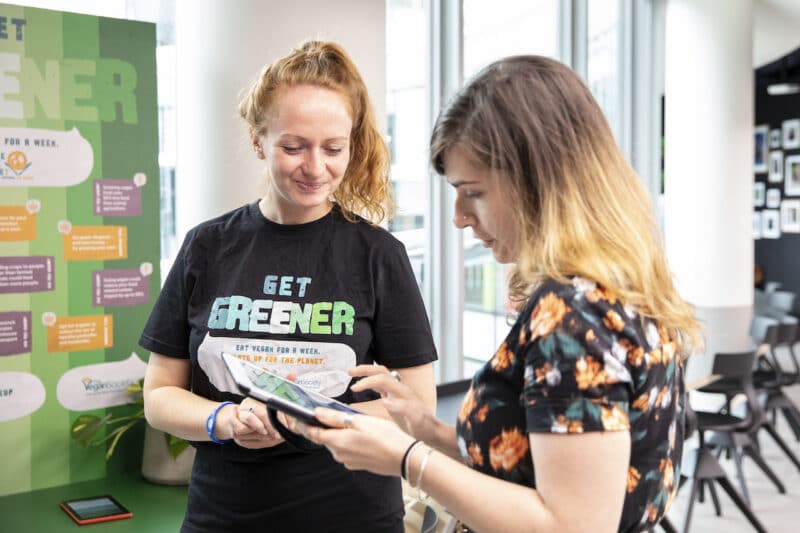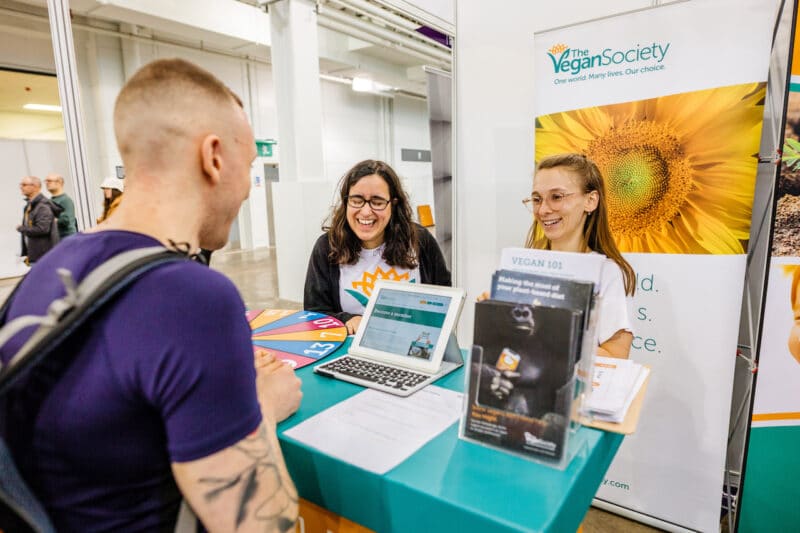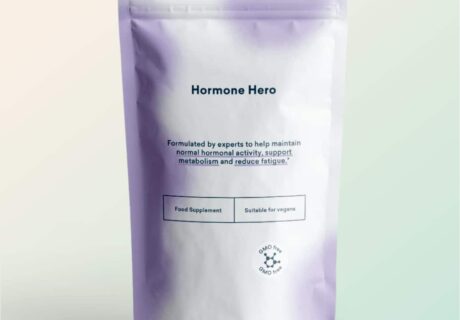Kaya Gromocki, volunteering and engagement officer, The Vegan Society, explains how remote working during the pandemic has opened up a new pool of volunteers, from Southampton to Sydney
In the days before COVID-19
Before the pandemic, our volunteer programme at The Vegan Society involved lots of office-based and face-to-face volunteering, events work and public outreach. It was not unusual for volunteers to join staff in the office on lunch breaks where we would sit and share vegan food while hearing more about the projects our volunteers were working on. One volunteer in particular, Alice, came into our office on a weekly basis and spent hours working on an archive, wading through historical documents that sat untouched in our basement. We also had the Community Network, a web of regional volunteers who provided a link between local volunteers and our national campaigns.
Then in early 2020 the pandemic hit, and I was forced to instantly put a stop to all volunteering. For a few months, a lot of our work came to a standstill; I was on furlough and was stuck at home with no idea what the future looked like, not only for our volunteering and outreach but also The Vegan Society in general.
Adapting to the change
Fast forward almost a year and things have taken a huge turn once again. I have just recruited several volunteers, including our eleventh proofreading volunteer, our third website development volunteer and our thirteenth community organizer as well as a new social media and digital content volunteer. Of course, remote volunteering comes with its own unique set of challenges which can lead some to believe it is ineffective and inconvenient. However, I have recently discovered, this couldn’t be further from the truth.
We’re now able to find people with those much-needed skills who are able to support us from their own homes, be that in Southampton or Sydney
As a global organization with over 50 permanent members of staff, we produce an extensive amount of copy for our magazine, website, blog and social media as well as for other publications and platforms. Handling all this internally was becoming quite a challenge. This is when I decided volunteers may be the answer, and so in November 2020 I created a specific job description for proofreading volunteers and posted it on our website. Thirty applications and eleven interviews later, we’re proud to have a bank of brilliant, responsive, meticulous volunteers, who take on tasks ranging from 200 to 45,000 words. For the first time in The Vegan Society’s 77-year history they are based right across the globe from Europe and Australia to the United States. They come from a wide range of backgrounds too, each bringing their own specialist knowledge and interest to our work. When they are not giving their time to us, these people are science editors, attorneys, teachers, software testers, translators, and business owners. Many aspects of global and remote volunteering that might be considered a hurdle have actually proven to be beneficial. Tight deadlines, for example, can more easily be met if you have a volunteer in a different time zone who can proofread your article overnight, while a volunteer who is fluent in multiple languages can translate and proofread copy, a skill that would normally be quite costly to outsource – something you always need to consider as a charity.
Volunteering is easier than ever
Previously when recruiting volunteers, I had quite a specific list of requirements: finding candidates with a strong interest and commitment to veganism, availability during office hours, a specific skill set, and the ability to commute to our Birmingham headquarters on a weekly basis. However, unlike before, we’re now able to find people with those much-needed skills who are able to support us from their own homes, be that in Southampton or Sydney.
I credit this incredible growth and development firstly to the fantastic volunteers, and secondly to The Vegan Society for being open-minded enough to find other ways of doing things.
The pandemic has undoubtedly been a tragedy, but more than anything it has also taught us that as a charity we are more capable, more adaptable and more versatile than we knew; never was this truer than when it comes to our volunteers.







